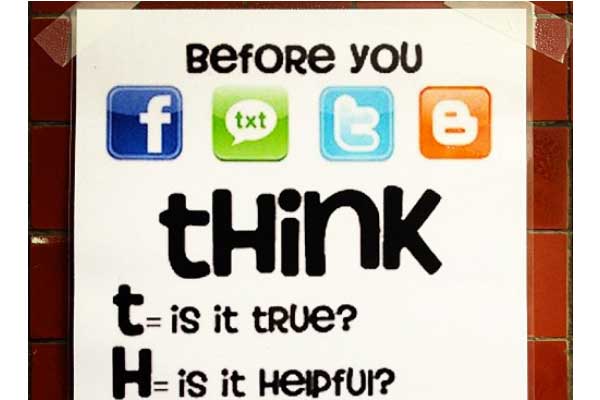
 Students are growing up in a different world than many of us experienced. They have always had smartphones, tablets and social networks. The Internet is now an important educational tool, and to ensure it remains a positive space of learning, it is important that students are taught digital citizenship skills.
Students are growing up in a different world than many of us experienced. They have always had smartphones, tablets and social networks. The Internet is now an important educational tool, and to ensure it remains a positive space of learning, it is important that students are taught digital citizenship skills.
Besides being digital natives, kids under 10 belong to the first generation that learned how to use a smartphone before how to ride a bike. Although they might understand technology better than their parents, it does not mean they know the impact it can have on their lives, and the lives of others.
Since the Internet is now part of daily student life in and out of the classroom, educators find themselves in the best position to educate students on how to behave online, just as they teach them good classroom etiquette. Being well mannered online is just as important as being well mannered in person, as the Internet has become a shopping mall, classroom and playground combined.
Just as a student should not say mean things to a student at recess, they should not say mean things to or about the student after school in an online forum. A student who is bullied at recess is less likely to want to participate in recess. The same logic applies to the Internet, and especially social networks. The golden rule of treating others how you want to be treated carries over from in-person to online interaction.
Digital citizenship should be about encouraging students to learn and venture out into new experiences, but in a way that is respectful to all so as not to deter others from using technology, or to provoke them into poor behavior.
Today’s students have a world of knowledge at their fingertips, and their generation is the first to not know of a world without the Internet. It is important to educate them on proper behavior, not just to make sure they enjoy technology, but to foster an environment that is enjoyable for others as well.
